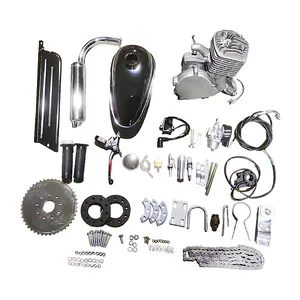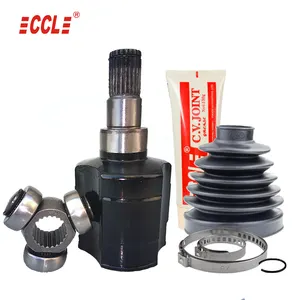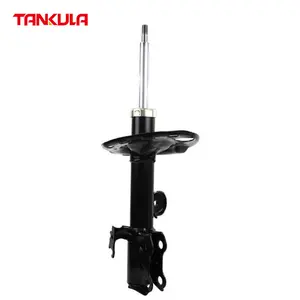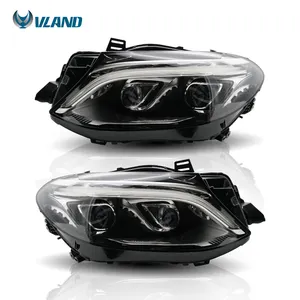Popular in your industry




















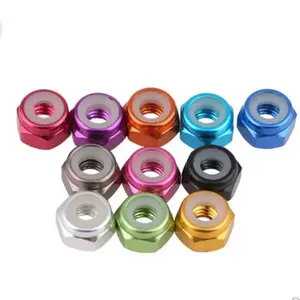

Top categories
About lug nut swelling
Understanding the phenomenon of lug nut swelling is crucial for vehicle maintenance and safety. This term refers to the expansion of lug nuts, which are designed to secure a wheel to the vehicle. Over time, lug nuts may swell due to factors such as corrosion, wear, and exposure to varying temperatures. This can make routine wheel changes or emergency repairs challenging, as swollen lug nuts may not fit standard tools. It's a common issue faced by many vehicle models, including Ford and Jeep, leading to terms like ford lug nut swelling and jeep lug nuts swelling becoming prevalent in automotive discussions.
Types of Lug Nuts and Their Characteristics
There are several types of lug nuts, each with unique characteristics. Conical lug nuts are the most common, designed to fit a tapered seat in the wheel. Meanwhile, ball or radius lug nuts have a rounded seating for specific wheel designs. Flat seat lug nuts sit flush against the wheel surface, and extended thread lug nuts are used for wheels with thick hubs. Specialty types like the swollen wheel nuts often arise from the standard types but have expanded due to corrosion or other factors. Understanding these variations is essential when diagnosing issues like ford f150 lug nuts swelling or selecting replacements for toyota lug nuts swelling.
Structure and Operation of Lug Nuts
The structure of a lug nut is relatively simple but crucial in function. A typical lug nut is comprised of a threaded body with a closed or open end, topped with a hexagonal head for tightening. In the case of swollen lug nuts ford, the outer cap expands, but the internal threaded core remains functional. The operation involves the lug nut being threaded onto a wheel stud, securing the wheel in place. The integrity of this structure is vital, as any swelling can compromise the ability to apply or remove the nut with standard tools.
Materials and Their Properties
Lug nuts are commonly made from carbon steel, which provides strength and durability. The choice of steel is due to its high tensile strength, ensuring that the nuts can withstand the forces applied during installation and while driving. Coatings such as chrome or zinc are applied for corrosion resistance. However, these coatings can be compromised, leading to issues like dodge swollen lug nuts. Manufacturers are exploring alternative materials like stainless steel or aluminum, which may resist swelling better over time.
Business Usages and Applications
In the automotive industry, lug nuts are indispensable. They are used in personal vehicles, commercial trucks, and even in high-performance racing cars. The reliability of lug nuts like ford wheel nuts swelling resistant models can be a selling point for businesses in the automotive repair and maintenance sectors. For businesses that manage fleets of vehicles, such as delivery or transportation services, using high-quality lug nuts can reduce downtime and maintenance costs, directly impacting operational efficiency and profitability.
Functions of Lug Nuts
The primary function of a lug nut is to secure the wheel to the vehicle's hub. This is achieved through the lug nut's threaded design, which allows it to be tightened down onto a wheel stud, clamping the wheel in place. In the case of swollen lugs, the function remains the same, but the compromised size may necessitate special tools or procedures to ensure proper wheel security.
Features of High-Quality Lug Nuts
High-quality lug nuts, such as those designed to resist lug nut swelling, feature durable materials and precise manufacturing. They may have a one-piece design, eliminating the risk of a swelling cap. Some have a flanged base to distribute load more evenly, and others are designed with a locking mechanism to prevent theft. These features set them apart from standard lug nuts and provide added value to consumers dealing with jeep renegade lug nuts swelling or similar issues.
Benefits of Swelling-Resistant Lug Nuts
Swelling-resistant lug nuts offer numerous benefits. They reduce the likelihood of wheel installation or removal issues, thereby saving time and frustration during tire changes. For businesses, this translates to less downtime and more reliable service. For the end-user, it means increased safety and confidence that the wheels are securely attached to the vehicle, even in harsh conditions that may cause standard nuts to swell, like those experienced with f 150 lug nuts swelling.
How to Use and Maintain Lug Nuts
Using lug nuts correctly involves tightening them to the manufacturer's specified torque using a calibrated torque wrench. This prevents over-tightening, which can lead to swelling. To choose the right lug nut, one must consider the vehicle's make and model, wheel material, and driving conditions. Regular cleaning with a wire brush can remove debris that may cause corrosion, and periodic inspections can help catch early signs of swelling, particularly in models known for ford f 150 swollen lug nuts. Proper maintenance also includes replacing lug nuts at signs of wear or damage.
Target Audience and Meeting Their Needs
The target audience for swelling-resistant lug nuts includes vehicle owners, automotive repair shops, and fleet managers. These products meet the needs of those who have experienced issues with swollen lug nuts ford models or other vehicles. By offering a solution that prevents the common problem of lug nut swelling, manufacturers cater to a market segment looking for reliability and ease of maintenance in their vehicle components.
How do I know if my lug nuts are swollen?
Identifying swollen lug nuts ford or any other vehicle involves a visual inspection and an attempt to fit a socket over the nut. If the socket that previously fit no longer does, or if there is visible distortion, you may be dealing with swollen lug nuts. It's advisable to compare the suspect lug nut with a new one to confirm swelling.
What are the risks of driving with swollen lug nuts?
Driving with swollen ford lug nuts poses significant risks. The primary concern is the inability to remove the nuts in the event of a flat tire, which can leave you stranded. Additionally, if the swelling is due to corrosion, it could indicate a weakened lug nut that might fail under stress, potentially leading to a wheel coming off while driving.
Can swollen lug nuts be prevented?
While not entirely preventable, the risk of swollen lugs can be minimized. Regular maintenance, using proper tools, and avoiding over-torquing are key steps. For those in regions with harsh weather conditions, choosing lug nuts designed to resist corrosion, such as those without a decorative cap or those made from higher-grade materials, can also help.
